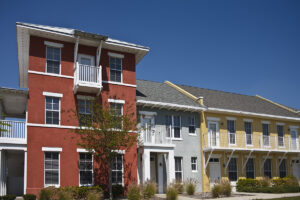
Residential communities thrive on a sense of safety, trust, and mutual respect. While security is an essential part of that equation, it doesn’t always require an intimidating presence. In fact, unarmed guards foster positive relationships by blending safety responsibilities with approachable, community-focused interactions. Their role extends beyond preventing incidents—they contribute to a welcoming environment that helps residents feel connected and secure.
Building Trust Through Approachability
One of the greatest strengths of unarmed guards is their ability to connect with residents on a personal level. Without the presence of visible firearms, guards appear less intimidating, which encourages open communication. Residents are more likely to greet them, share concerns, and offer valuable feedback about community safety. Over time, this rapport builds trust, creating a foundation for a safer and more harmonious neighborhood.
Enhancing Community Engagement
Unarmed guards often serve as friendly, familiar faces in residential areas. They may participate in community events, welcome guests, or assist residents with everyday tasks like directions or small emergencies. These interactions make them more than just security personnel—they become part of the community fabric. When residents see guards actively engaging with them, it reinforces the idea that safety is a collaborative effort.
Preventing Issues Through Observation and Communication
While their approach is friendly, unarmed guards remain vigilant. They monitor access points, patrol communal spaces, and observe potential risks, but their primary tool is communication. By calmly addressing concerns, resolving disputes, or de-escalating conflicts, they prevent small issues from escalating into larger problems. This proactive, relationship-based approach is one of the reasons unarmed guards foster positive relationships so effectively.
Supporting a Safe, Welcoming Environment
In residential communities, safety is not just about preventing crime—it’s also about creating a space where people feel comfortable and respected. Unarmed guards help maintain that balance by promoting rules and policies in a respectful manner. Their focus on diplomacy and empathy reassures residents that security measures exist to protect, not intimidate.
Acting as a Bridge Between Residents and Management
Unarmed guards often act as liaisons between residents and property management. When residents have concerns—whether about security lighting, parking, or visitor policies—guards can relay that feedback directly to decision-makers. This two-way communication helps ensure that management understands resident needs and that residents feel heard.
Creating a Comfortable Community
Safety is still the top priority of unarmed guards in residential communities, but so is fostering a sense of unity. By prioritizing approachability, engagement, and clear communication, unarmed guards foster positive relationships that enhance both security and community spirit. They prove that effective safety measures can be as much about building connections as they are about protection.
CES is Dedicated to Serving Our Community
Since opening in 1975, we have been committed to serving businesses in the District of Columbia, Maryland, and Virginia. Our values include proactive communication, honesty, reliability, and quality. We also believe in paying unparalleled attention to detail, no matter which service you require us to provide.
Our services include the following: professional security teams for permanent, temporary, emergency, and rapid-response support; around-the-clock patrols and management attention; concierge and hospitality staffing; and a dedicated mobile patrol service with associated staffing. Contact us for a free professional consultation today! Call 443-471-7000. Don’t forget to follow us on social media through Facebook, Twitter, and LinkedIn!
